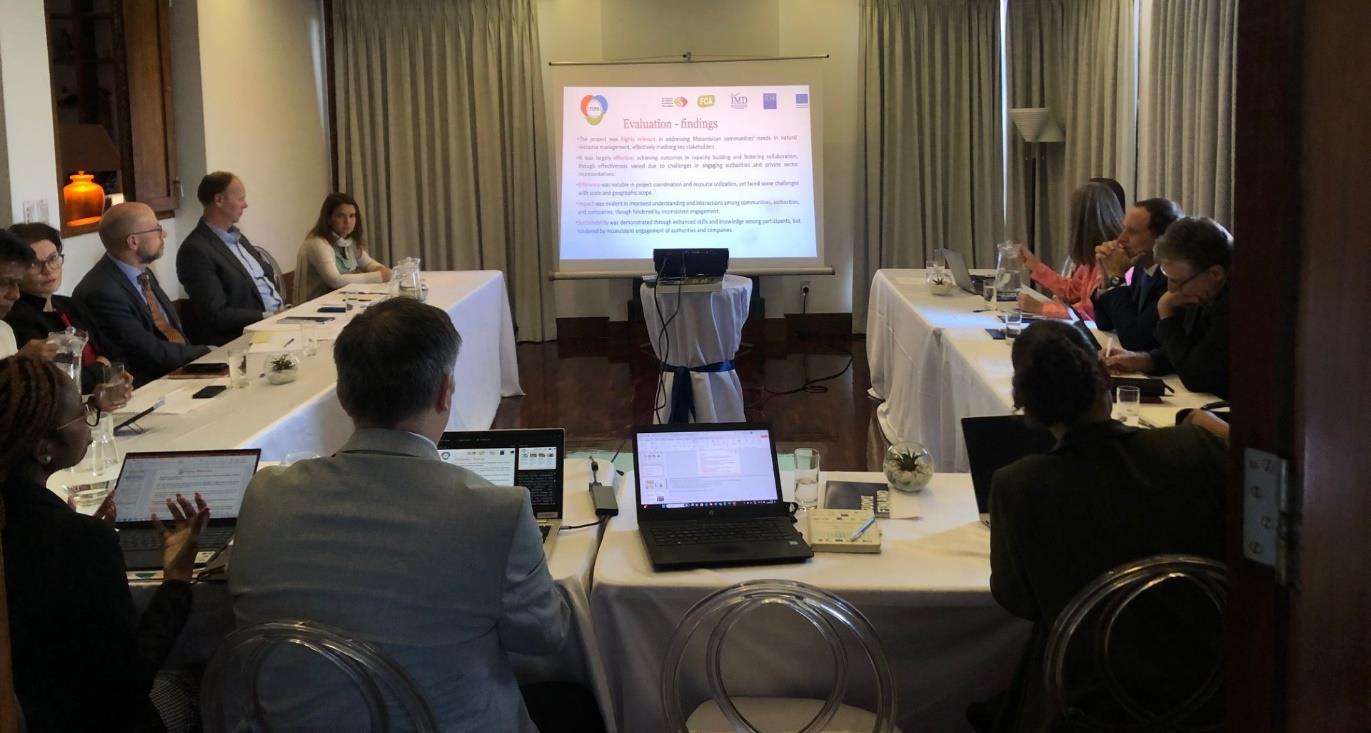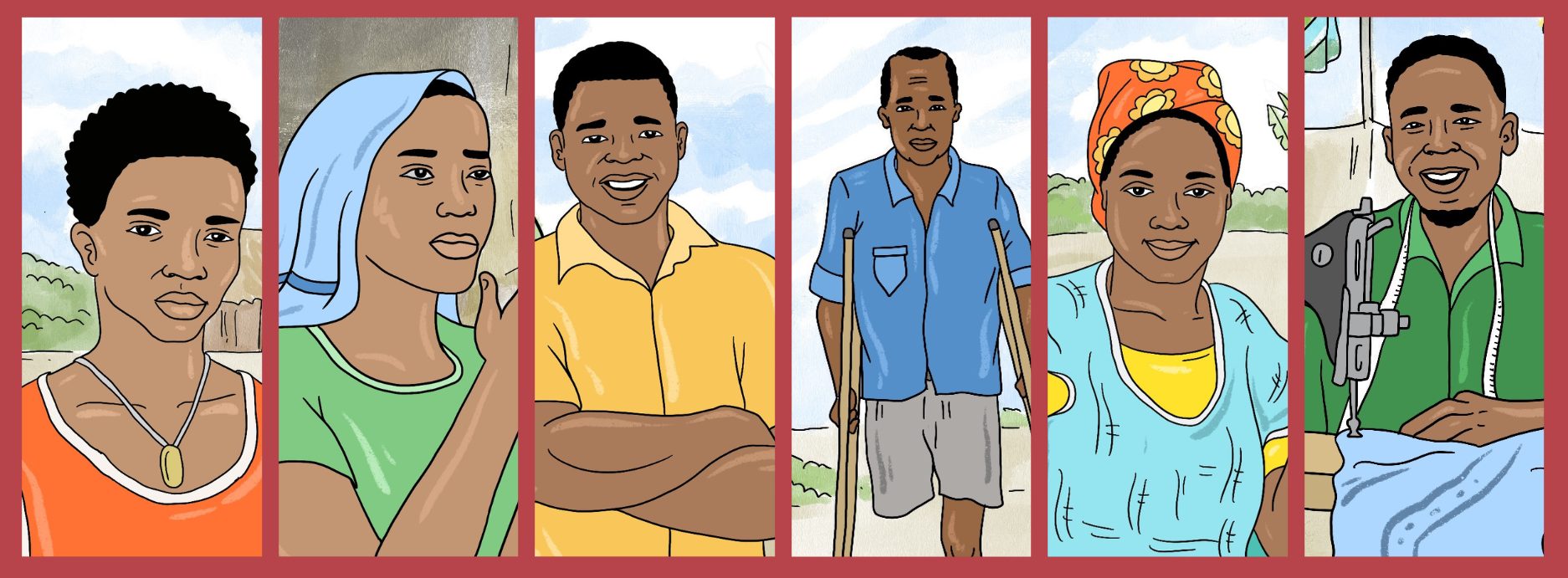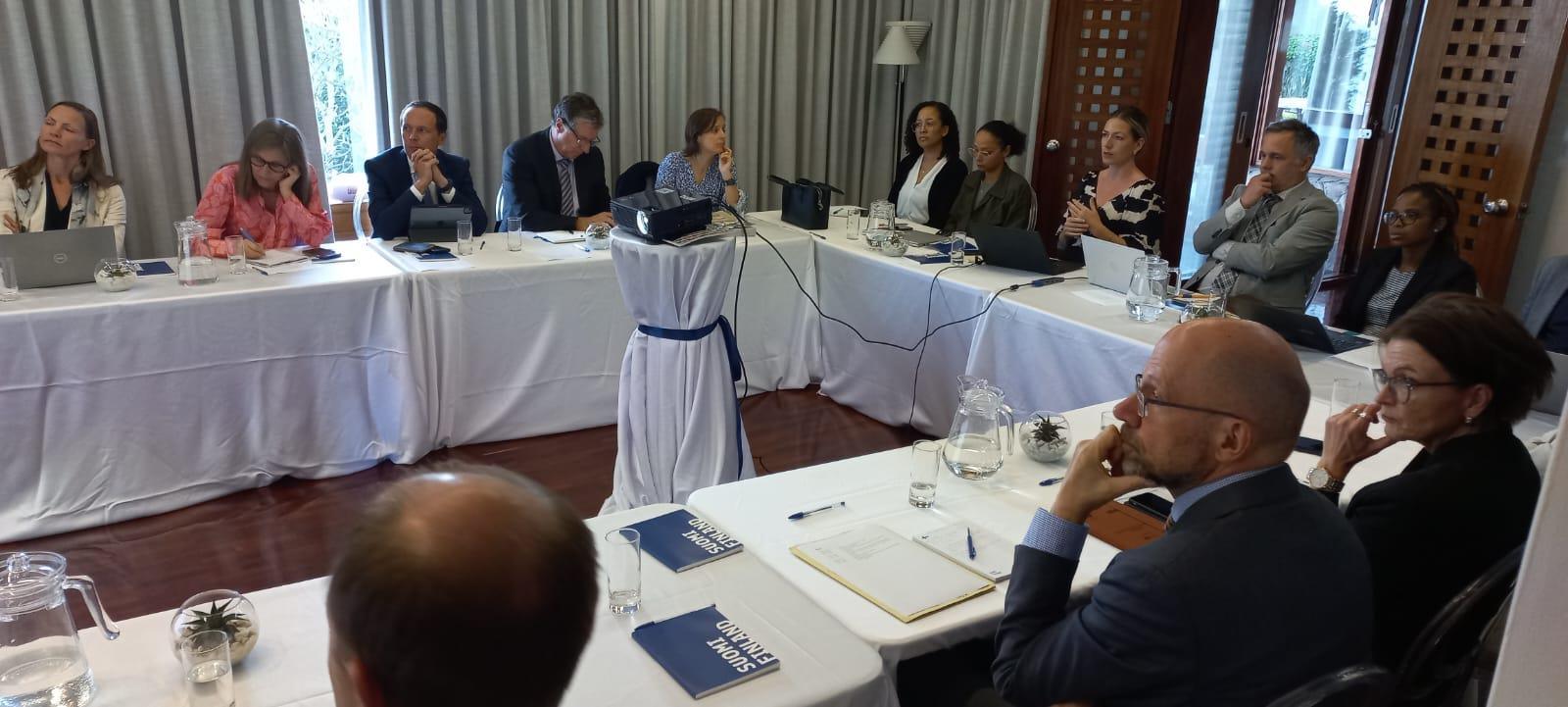Facilitating Deeper Understanding of Developments in Mozambique
Diplomatic Briefing | May 2024
On the 16th of May, the Peacemakers Network organized a briefing for members of the diplomatic community in Mozambique to share results and lessons learned from our peacebuilding work in the country. The briefing, hosted at the Embassy of Finland, gathered Ambassadors and political advisors from the embassies of Sweden, Portugal, Germany, France, Finland, and the EU delegation. The event was an opportunity to engage with the diplomatic and development community in Mozambique, facilitating a deeper understanding of the developments in the Northern conflict zone. Additionally, it served as a platform for discussing future collaborations and interventions, fostering strategic partnerships and opportunities for continuing programming in Mozambique and the wider region.
Presentations on the Peacemakers Network’s three projects in Mozambique

Tatiana Almeida (IMD) presents the key findings from the TIPS evaluation.
Launched in 2021, the Peacemakers Network’s efforts in Mozambique began with the three-year EU-funded ‘Towards an Inclusive and Peaceful Society‘ (TIPS) project, whose objective was conflict prevention, crisis preparedness and response, and peacebuilding through inclusive natural resource governance and management. Together with project partner the Institute for Multiparty Democracy (IMD), the Peacemakers Network used the briefing to share findings from an independent evaluation of TIPS. The evaluation affirmed the project’s high relevance and successful achievement of expected outcomes. This included strengthened leadership and capacities of civil society actors to prevent and address natural resource-based conflicts and increased collaboration and mutual learning between communities, CSOs, national and provincial authorities, and the private sector on conflict resolution and natural resource management.

Stories for Peace and Social Cohesion – a Toolkit developed for the ID-Peace Project.
Next, the Peacemakers Network and the MASC Foundation presented key results from the ‘Inter-religious Dialogue for Peace and Social Cohesion in Mozambique’ (ID-Peace) project – a two-year project aimed to reduce inter- and intra-communal tensions and related religious freedom abuses by strengthening social cohesion and religious tolerance in Northern Mozambique funded by the US Department of State Bureau of Democracy, Human Rights, and Labor (DRL). One of the key outcomes of the project has been increased awareness and literacy of community stakeholders regarding the concepts and implications of religious pluralism, mutual respect, and inclusion of all through tailored training sessions. The Peacemakers Network presented a Toolkit for Peace Practitioners and Mediators consisting of illustrated stories (both video and text format) telling true-to-life experiences with conflict, displacement, inter-religious dialogue, designed to prompt discussion about how everyone can act to build peace and community cohesion.

Celina Sorboe, Project Coordinator at the Peacemakers Network, shares key findings from a Conflict and Resilience study in the CSC project’s target districts.
Finally, the Peacemakers Network and project partner Aga Khan Foundation (AFK) shared experiences from the ongoing EU-funded ‘Community Social Cohesion‘ (CSC) project that seeks to strengthen social cohesion and resilience to radicalization in conflict-affected districts in Northern Mozambique. The Peacemakers Network presented key findings from a study mapping existing and potential conflict drivers and their impact on livelihoods, food security resilience, and social dynamics, as well as training materials developed to strengthen key stakeholders’ capacities on conflict sensitivity, mediation, and resolution. A video showcasing community members’ experiences with the training sessions and best practices for managing conflicts can be found here.
The two-hour briefing was followed by a networking reception that included additional guests from international and non-governmental organizations.
Participants expressed unanimous agreement on the value of such briefings for obtaining updated information on evolving dynamics, especially for those working in Maputo who are distanced from direct field experiences. The importance of addressing the situation in Cabo Delgado and surrounding conflict areas was universally acknowledged. Given the potential religious undertones of the conflict, the Peacemakers Network was regarded as well-positioned for follow-up engagement. However, a significant challenge identified was the reduction in funding from various development partners, including the EU, Finland, Sweden, and Germany. Despite the funding cuts, many embassies expressed interest in engagement opportunities and potential collaboration, including those from US, Germany, and Ireland. Additionally, the Finnish embassy expressed openness to exploring avenues for future support.
Follow the Network on social
